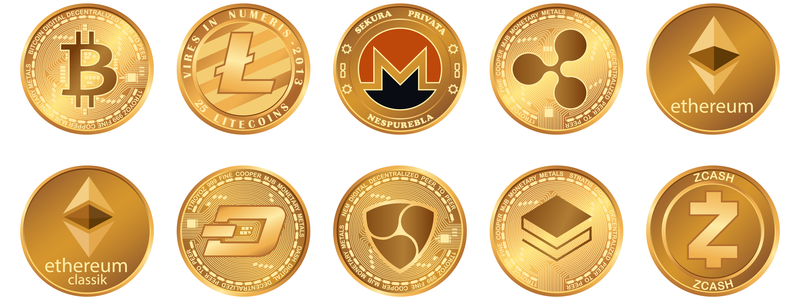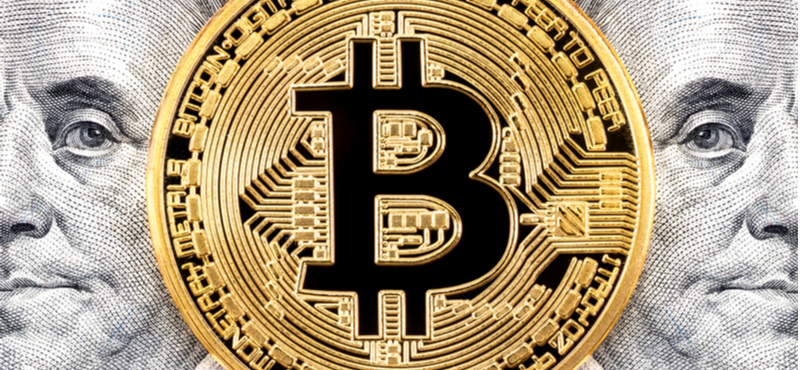 Friday, March 10 2023
Cryptocurrencies have brought a revolution to the way people think about money. They allow you to buy things easily and securely because of USA-wide crypto merchant adoption. But at the same time, cryptocurrencies are volatile and dangerous investments. But what are cryptocurrencies? And how can you get started with them? If you are just stepping your toes into the decentralized finance space, these are the questions that need to be answered first. You need to know what you're getting into and how you can do it in a secure and easier way. Here's everything you must know about cryptocurrencies, including how they work, some commonly used jargon, why crypto is the future, and how to buy crypto in the USA! Excited? Let's get started then: First, We Have to Set The Basics Right:What is Crypto?Simply put, cryptocurrency is a type of digital money that's created, mined, and transacted via blockchain technology. Different cryptocurrencies like Bitcoin or Ethereum use different blockchains with their own network of computers called nodes. These computers or nodes are run by people known as validators who mine these cryptocurrencies using the processing power of their computers. The validators keep the network transparent by keeping track of and verifying the transactions carried out by crypto users. For Example: if Jamie sends some bitcoins to Lisa on the blockchain network, the network's validators will confirm the transaction took place, which becomes an entry of the digital ledger of that network. Each network has its own means of transaction validation called consensus protocols that decide which validator gets to validate a transaction. The validator that gets assigned this task earns a rewards, typically in the form of cryptocurrency, for using their computing power to validate the transaction. Some blockchain networks use mining, while others leverage time stamping or staking. So How Do People Buy or Sell Crypto?There are multiple ways to investing crypto, but the best and most commonly used is via cryptocurrency exchange apps like Voyager and Binance. Here, people can use their fiat currency (regular money like USD) to purchase a cryptocurrency available on the platform. But these are centralized exchanges because they allow you to exchange fiat money with cryptocurrencies. There are also decentralized exchanges called DEX's that require you to have a crypto wallet, public keys, or private keys. You can send and receive crypto using the addresses of these wallets or the keys. However, since these are decentralized forms of transactions, you can only exchange cryptocurrencies – so no fiat money.
Types of Cryptocurrencies:Before you dive into the crypto investing game, you need to know how many types of cryptocurrencies are there, as this will help you decide where you should put your money. In a general sense, there are two kinds of cryptocurrencies; Bitcoin and alternative coins (Altcoins). Although both of them operate on the blockchain, bitcoin was the first cryptocurrency and has dominated the market with the highest value, so it became a separate category. Altcoins are all the other crypto coins except bitcoin, and there are many types of altcoins available today; some of the mainstream ones include: Smart Contracts:These are just like the everyday physical contracts but consist of algorithms and are programmed to execute on the blockchain automatically. Unlike bitcoin, which is typically limited to being used as a currency, smart contracts can also execute contracts once certain pre-programmed conditions are met between two parties who have come to an agreement. With smart contracts, things that would otherwise require legal agreements like lending and borrowing become digitalized. The encrypted contract is stored across the blockchain; it cannot be edited or tampered with in any way, making it way secure. Smart contracts enabled a wider crypto merchant adoption, especially in the industries with high risk like insurance, banking, and finance. DeFi:Decentralized finance, or DeFi for short, is a part of the crypto space that is centered on peer-to-peer digital finance and transactions. By leveraging the power and efficiency of smart contracts, Decentralized Finance platforms provide users with a space for borrowing, lending, saving, and trading that eliminates the typical paperwork and bureaucracy. Stablecoins:These are the cryptocurrencies with static value and linked to a fiat currency like dollars. An example of a stablecoin is USDT (USD Tether) which is linked to the value of United States Dollars. Since fiat currencies back stablecoins, they experience regular volatility in the market, keeping them stable (in line with the value of their fiat currencies). Now, Let's Take a Gander at The Common Lingo:Although the crypto market is similar to the forex and stock markets in many ways, it has its own jargon and terms that you should be aware of to navigate the market easily:
The terms above are just some of the most common jargon you'll come across in the crypto space. Keep learning the crypto language by using glossaries like CoinMarketCap to increase your crypto vocabulary.
Next, Let's Talk About How Crypto is Making Its Way into Financial Space:At the time when Bitcoin was launched in 2009, there were more critics of cryptocurrency than supporters, and even top-tier investors like Warren Buffet urged people to stay away from it. However, as time passed, the value of bitcoin and other cryptocurrencies that were launched later on, like Ethereum, grew, which made many heads turn. Now, the crypto market size in the U.S alone was recorded at $1.6 billion in 2021 and is predicted to grow to $2.2 billion by 2026. This massive increase in size makes everyone wonder why on earth people are investing in something so new and volatile. Well, let's look at a few reasons below: Huge Diversity:Although it started with just one coin - bitcoin in 2009, we have over 8,000 cryptocurrencies on the market today. With such a HUGE choice range, it is easy to find the cryptocurrency backing a project fitting your interests, including sports, education, gaming, art, and philanthropy. Crypto has made its way into many industries besides just finance. It's Becoming More Sustainable:Many eco-conscious investors disliked the idea of mining, where too much energy is wasted to operate the blockchain. However, validating blockchain transactions is becoming more energy efficient with the proof of stake concept. Developers are consistently creating more protocols that are making mining useless. With this new revolutionary concept, more and more investors will be jumping on the crypto bandwagon. It's Securer:At the beginning years of crypto, anonymity was there, but there wasn't a high level of security. We've all come across the horror stories of people losing their private keys because of phishing scams or poor storage. However, security has improved significantly with stringent regulations, built-in security technology in some of the best crypto exchange apps, and 2-Factor Authentication; another reason why more and more people are investing in crypto. Crypto Merchant Adoption is a Reality Now:Gone are those days when you had to convert your crypto investment profits into USD to purchase something in retail stores. Now, more and more bitcoin merchant services are popping up throughout the globe, making crypto merchant adoption a reality. Thanks to altcoin and bitcoin merchant services, you can now purchase physical goods from many stores and pay them in crypto, including Burger Kings, KFC, Virgin Galactic, AT&T, and more – you can look at this list for more stores. And that’s not it; many more stores will start accepting crypto payments with time. Finally, Let's Discuss How to Buy Cryptocurrency in the US - Simple Steps to Enter the Game:We are past the time when you had to search how to buy cryptocurrency in the USA and spend hours trying to figure things out, only to give up in the end. Purchasing cryptocurrency is pretty easy nowadays. Here's how you can do it: Choose a trusted exchange website or app where you can get crypto in exchange for your fiat currency. The best cryptocurrency app for beginners is Coinbase, mainly because its U.S based, so its policies are pretty solid. Gemini is also a great option, and so is Coinmama. You can learn more about these platforms and make an account on any one of them.
Well, that's pretty much it. If you do these steps, you can purchase your first cryptocurrency in just a few minutes once your account is verified on the exchange. Parting Words:Every piece of information provided here is just to educate people about crypto and how they can purchase it. We are not suggesting that they buy anything because the crypto market is volatile, and you SHOULD NOT invest without prior knowledge. Furthermore, the previous performance of any digital asset, including cryptocurrencies, does not guarantee future gains because the value keeps changing with time and economic factors. Therefore, we suggest you start educating yourself on how to analyze the market and then make any trades but remember, there's always a risk with crypto investments, so be very careful. |
©2025 Shaw Merchant Group is a registered DBA of EPX, a registered ISO of BMO Harris Bank N.A., Chicago, IL, Fresno First Bank, Fresno, CA, and Citizens Bank N.A., Providence, RI.






